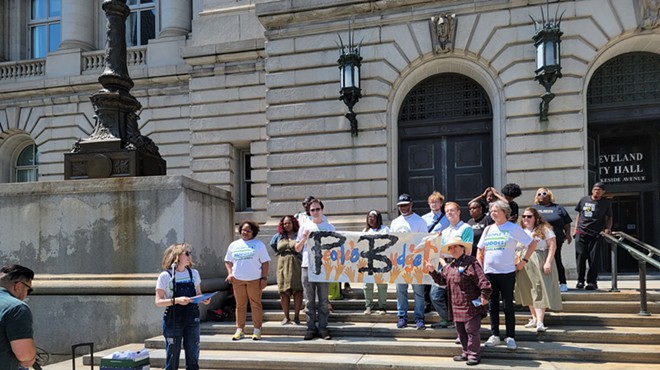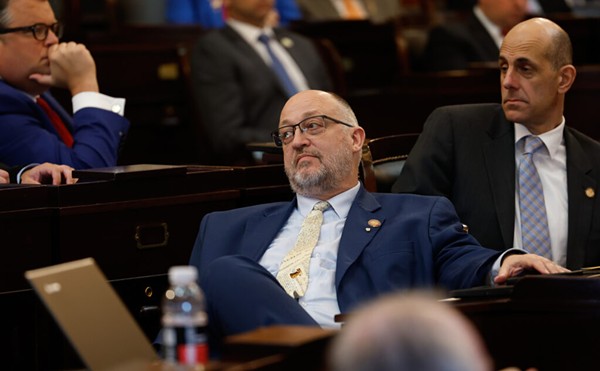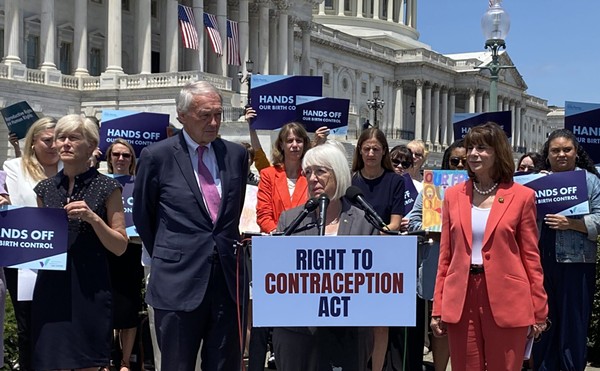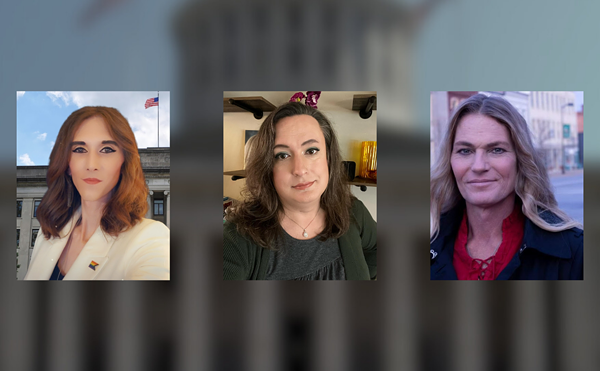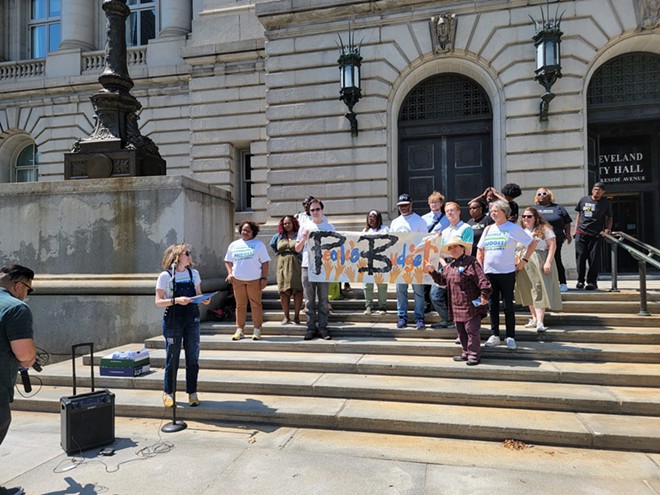
City council as a whole declined to enter into any substantive discussions, as Blaine Griffin told Ideastream, "We didn't even go to the table to have that conversation because, quite frankly, these guys made a decision a long time ago that they were going to move forward with this."
The original language, which would allocate 2% of the city's annual budget, or around $14 million, to decisions made by residents through the PB process, will go ahead before voters.
“PB CLE welcomed dialogue and collaboration with City Council and the administration,” said PB CLE campaign manager Molly Martin in a statement. “PB CLE felt it was important to pursue a collaborative approach with council as the issue heads to the ballot in November. We are confident that the existing charter amendment going before voters is one the city can plan for.”
“I approached both the Coalition and Council leadership about whether there was any room for a deal to be struck,” Councilwoman Rebecca Maurer said in a statement. “I shuttled between both sides discussing if a lower dollar amount was possible. I truly believe there was a good-faith effort on both sides, but there just was not enough room for compromise and it was clear we were running out of time given the need to pass any change through a meeting of Council.”
Maurer was one of four councilmembers who sponsored legislation for a much smaller participatory budgeting pilot program which would have been allotted $5 million in ARPA dollars. Despite support from Bibb, the ordinance failed to gather majority support in City Council and was shot down in January.
“Myself and three other members co-sponsored the bill,” Maurer said. “But the rest of Council’s disdain for putting real dollars behind community participation was palpable. The pilot didn’t pass. It was a shame to see community engagement seen as a threat rather than as an opportunity.”
However, Maurer will not support the charter amendment in November’s election, citing the inability to pause participatory budgeting even if the city has to dip into savings or the steering committee struggles to spend the PB fund in a timely manner. (Bibb has also come out publicly against the amendment.)
“It would not even be paused in the worst-case scenario of a fiscal emergency,” said Maurer. “I think these are among the key reasons that many of the city’s labor unions have come out against this ballot initiative. I join them in doing so.”
Indeed, although the coalition is made up of and backed by nearly 20 partners like NAACP Cleveland and the Ohio Working Families Party, PB CLE’s amendment has faced a recent wave of opposition from unions and trade groups.
Last week, both the North Shore Federation of Labor–which represents nearly 150 unions in Cuyahoga and neighboring counties–and the Cleveland Building and Construction Trades Council (CBCTC)–which represents more than 25 unions–publicly opposed the charter amendment.
“That means $14 million in projects would be decided on by an undetermined and unelected group of people, creating a huge hole in the City’s general fund,’’ said Local 310 business manager Terence Joyce of CBCTC. “The city administration has directors and finance staff that quite simply have better expertise to make budget decisions.”
This week the Cleveland Association of Rescue Employees, Association of Cleveland Firefighters and the Cleveland Police Patrolmen’s Association joined opposition against the amendment, claiming without evidence that it would directly lead to cuts in public safety budgets.
“The Cleveland Police Patrolmen’s Association, which represents Cleveland’s patrol officers, unanimously opposes the November ballot initiative that will cut critical funding for safety and services,” the group said in a statement released by City Council. “Our patrol officers take the mission of serving and protecting Clevelanders seriously. The proposed ballot initiative, if passed, will negatively impact the Cleveland Division of Police, safety, and other services provided by the City of Cleveland.”
However, there’s nothing in the charter amendment that would require it to “cut critical funding for safety and services.”
Although allotted funding for the PB Fund is determined by the previous year’s General Fund, it wouldn’t necessarily all be taken from the General Fund. In order to remain flexible from year-to-year, the amendment doesn’t list a source of funding. In addition to drawing from the General Fund, up to 60% of the PB Fund could come from the Capital Budget.
But those in opposition to the charter amendment say no amount of money can responsibly be taken from the General Fund.
“Last year we successfully balanced the city’s $710 million general fund for the first time in years with a remaining balance of only $196,518,” Maurer said. “Even if this amendment allows for a mix of capital repair dollars and general fund dollars to reach $14 million, any draw on the general fund is a risk for a poor city like ours.”
Ahead of November’s election, representatives from PB CLE will debate outspoken critic of the participatory budgeting amendment Councilman Kris Harsh and a partner who has not been named.
“If the People's Budget wouldn't be fully implemented until 2027 and the Browns stadium mortgage gets paid off in 2028, we should be able to expect a future where our public dollars are prioritized on streets over stadiums,” said Martin. “The People’s Budget adds transparency and accountability to that commitment.”
Maurer, for her part, struck a middle-ground approach in her statement, noting council and the administration need to embrace some form of participatory budgeting and realign priorities to reflect residents' concerns.
"I am ultimately frustrated that this conversation has gotten so entrenched on both sides. As we fight over the specifics of this charter amendment, we lose the bigger conversation about the endless money the City seems to find for new stadiums or tax breaks for big-time developers downtown," she said in the statement. "Fundamentally, I want to challenge both my colleagues on Council and the Mayor’s administration to find real ways to increase public participation in our city’s budget, even and especially as they oppose the proposed PB charter amendment. Let’s get real public input on the budget — even as simple as using a model like Cincinnati's. We must stay focused on doing the hard work of rebuilding trust between our government and our residents. PB’s proposed charter amendment is not the right way to do it, but there are many other options we should pursue."
Subscribe to Cleveland Scene newsletters.
Follow us: Apple News | Google News | NewsBreak | Reddit | Instagram | Facebook | Twitter | Or sign up for our RSS Feed

